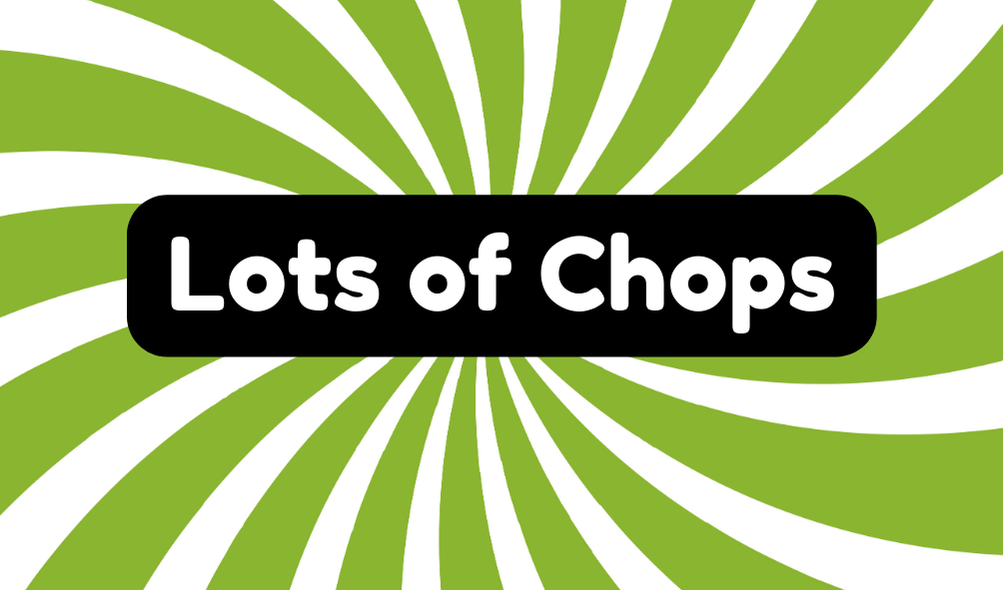The term “chops” refers to an individual’s skill or expertise in various fields, especially music. Originating from Middle English, it evolved to signify proficiency, particularly in jazz and wind instruments. Particularly, phrases like “political chops” indicate adeptness in governance, while “actings chops” highlight performance talent. Many use “chops” to communicate mastery, enhancing discussions. However, one should consider whether simply having “lots of chops” truly reflects competence. Further exploration reveals the nuances behind this multifaceted term.
Synonyms
When exploring the term “chops,” one encounters a variety of synonyms that reflect its nuanced meaning.
These alternatives often emphasize the underlying concept of skillful expertise and the dedication required for musical proficiency.
The richness of this terminology serves to illustrate various dimensions of capability across disciplines.
- Mastery
- Technique
- Talent
Example of Sentences
Chops can be illustrated through a variety of sentences that encapsulate its meaning and usage in real-world contexts.
- “Her public speaking chops have greatly improved through diligent skill development.”
- “The athlete showed remarkable chops in the final game, demonstrating true performance enhancement.”
- “Mastering jazz guitar requires consistent practice, but achieving those chops is worth the effort.”
These examples highlight how the term “chops” conveys a sense of hard-earned expertise.
The language reflects the effort behind skill development and performance enhancement, emphasizing that true mastery comes from dedication, making it essential for innovation in any field.
Origin
The term “chops” has an interesting history that reveals both its literal and metaphorical evolution. Originating from the Middle English “choppen,” meaning to cut, it first appeared around 1577, signifying jaws and later expanding to encompass various mouth-related features.
Its important cultural evolution significantly emerged in jazz music by 1942, where “chops” referred to wind instrument skill. This evolution underscores the term’s historical significance, illustrating how language adapts to reflect new ideas and practices.
Although “chops” has broadened in usage, its foundational meaning connected to skill and effort remains a vital aspect of its identity in contemporary discussion.
Collocations
In discussions about skill and expertise, certain collocations involving the term “chops” frequently arise. These phrases often highlight the significance of proficiency, particularly in specialized fields.
For instance, “chop skills” conveys a mastery that separates the proficient from the novice, while “jazz chops” emphasizes the advanced techniques required in musical performance. Understanding these collocations can shed light on cultural perceptions of talent and achievement.
Remarkably, the following phrases illustrate varied contexts:
- “Political chops”
- “Acting chops”
- “Cooking chops”
How to Use in Everyday Language
Skillful communication often hinges on the effective use of terms like “chops,” which can elevate everyday language. By incorporating this term, individuals can explore innovative ways to practice expressing their skills.
For instance, one might say, “She has impressive teaching chops,” to convey mastery. It’s vital to recognize when to use such phrases, ensuring they enhance rather than confuse conversations. This adds depth and flavor to dialogue.
Furthermore, understanding how to utilize “chops” can enhance skills in both informal and formal settings. Overall, thoughtful application of this term fosters richer interactions, leading to more engaging exchanges.
Why Is It Still Relevant Today?
With a foundation laid in effective communication, the relevance of the term “chops” continues to resonate in modern discourse. Its significance lies in the skill and resilience showcased across various fields, adapting culturally over time. The term embodies competence that is both earned and valued.
| Context | Chops Significance | Cultural Adaptability |
|---|---|---|
| Music | Mastery in performance | Evolved in expressions |
| Acting | Emotional depth | References in media |
| Leadership | Strategic skill | Usage in daily speech |
| Education | Authority in subjects | Embraced by youth |
This adaptability guarantees “chops” remains relevant today.
To sum up, the term “chops” serves as a proof of human effort and expertise across various disciplines. While its roots lie in physical attributes, its evolution into a marker of skill highlights a profound understanding of the dedication required to excel. Much like a well-crafted instrument, the essence of “chops” lies in the mastery achieved through practice and perseverance. As society continues to recognize and celebrate such commitment, the relevance of “chops” remains firmly entrenched in our cultural dialogue.







